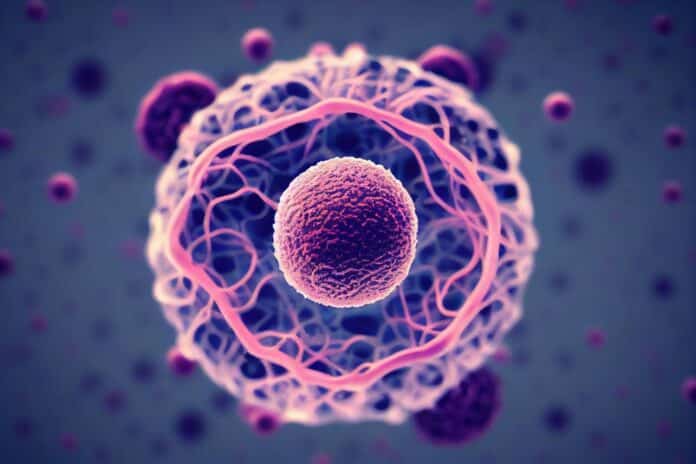A new study from MIT found that precancerous cells in the colon activate a gene called SOX17. This gene helps these cells avoid detection by the immune system, allowing them to progress into more advanced tumors. The immune system’s helps to find and destroy cells with cancerous changes. However, some early-stage cancer cells can trick the immune system and grow into more dangerous tumors.
MIT and Dana-Farber Cancer Institute study revealed a strategy precancerous cells use to escape immune detection. They found that activating a gene called SOX17 makes these cells invisible to the immune system during early colon cancer development. Stopping SOX17 or its pathway could be a new way to treat early-stage cancers before they become larger tumors.
Omer Yilmaz, an MIT associate professor of biology, a member of MIT’s Koch Institute for Integrative Cancer Research, and one of the senior authors of the study, said, “Activation of the SOX17 program in the earliest innings of colorectal cancer formation is a critical step that shields precancerous cells from the immune system. If we can inhibit the SOX17 program, we might be better able to prevent colon cancer, particularly in patients that are prone to developing colon polyps.”
The study highlights the immune evasion in colon cancer. Colon cancer starts growing in intestinal stem cells, regenerating the intestinal lining throughout a person’s life. These cells can accumulate cancerous mutations over time, leading to the development of polyps, a type of precancerous growth that can lead to metastatic colon cancer.
The researchers used a method they had previously developed to understand how precancerous growths avoid the immune system. They grew mini colon tumors in a lab dish and then transferred them into mice. These tumors were engineered to contain mutated versions of genes linked to cancer: Kras, p53, and APC, commonly found in human colon cancers.
After transferring these tumors to mice, the researchers noticed a significant increase in the expression of SOX17. This gene usually works during embryonic development to regulate intestine development and blood vessel formation.
The researchers found that activating SOX17 in cancer cells creates an environment that covers the immune system. SOX17 stops cells from making receptors that detect interferon-gamma, a molecule crucial for the immune system to fight cancer. Without these receptors, cancer cells ignore signals from the immune system that typically trigger them to die.
Yilmaz said, “One of SOX17’s main roles is to turn off the interferon-gamma signaling pathway in colorectal cancer and precancerous adenoma cells. By turning off interferon-gamma receptor signaling in the tumor cells, the tumor cells become hidden from T cells. They can grow in the presence of an immune system.”
When interferon gamma signaling is blocked, cancer cells reduce their production of MHC proteins, which have cancer antigens to the immune system. They also stop making chemokines, which attract T cells that could kill the cancer cells.
The researchers found that the immune system could better attack the tumors by disabling SOX17 in colon tumor organoids and then implanting them into mice. This suggests that preventing cancer cells from turning off SOX17 could effectively treat early-stage colon cancer.
“By turning off SOX17 in complex tumors, we essentially eliminated their survival ability,” said Goto.
The researchers also studied gene expression data from colon cancer patients. They discovered that SOX17 is highly expressed in early-stage colon cancers but decreases as the tumors become more aggressive and spread.
Yilmaz explained,” As colorectal cancers become more aggressive and spread, they develop other ways to suppress the immune system. When this happens, SOX17 becomes less crucial.”
Transcription factors like SOX17 are challenging to target with drugs because of their complex structure. The researchers aim to find other proteins that interact with SOX17, which could be more accessible to block. They also want to understand what triggers SOX17 activation in precancerous cells.
The study highlights the mechanisms by which early-stage cancer cells evade immune detection by targeting SOX17.
Journal reference:
- Goto, N., Westcott, P.M.K., Goto, S. et al. SOX17 enables immune evasion of early colorectal adenomas and cancers. Nature. DOI: 10.1038/s41586-024-07135-3.
